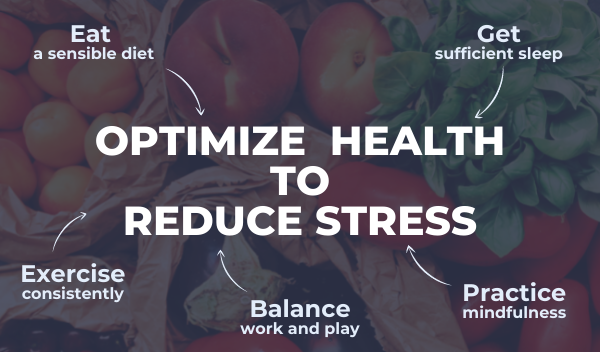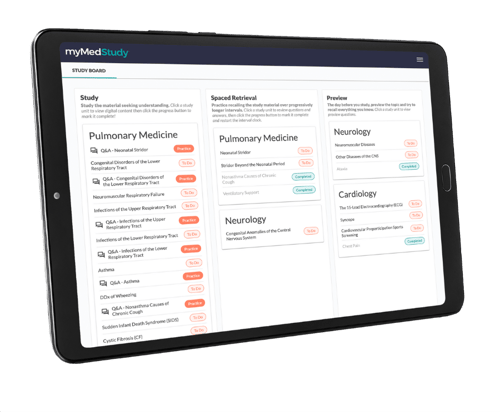
Unclench your jaw and relax your shoulders as you read this. It's Stress Awareness Month.
And whether you're a physician with 20 years of practice under your belt, or a first year med student with a budding career ahead of you, stress carries the potential of the same outcome: limited learning.
Luckily, we've got both the methods and the tools to stop this silent saboteur so that you can study strong.
So, how does stress impact your study efforts and limit your learning? By interrupting the encoding and consolidation process.
What are Encoding & Consolidation?
Encoding. When you experience an event, all the information is funneled to the hippocampus and converted into a neural code that can be stored and accessed. Encoding is reinforced by good health and attitude; an event’s importance; sights, sounds, and smells you encounter; emotions you feel; an interesting storyline; and effective study techniques.
Consolidation. It takes hours to days after encoding for your brain to successfully convert the new memory into long-term memory. During this process, elements of the memory are associated with similar, previously saved memories and stored into your brain’s “semantic network,” made up of everything you remember and know.

The best ways to optimize your health and reduce stress.
Study Strong With Optimized Physical & Mental Health
One of the best ways to support your study efforts is by optimizing physical and mental health (because your encoding and consolidation will then be even stronger!). We know you know these—and probably recite them to patients daily— but here's a reminder of the best ways to optimize your health and reduce stress:
- Eat a sensible diet. Here's a reminder to limit carbs—including sweets and junk food— and focus on veggies, fruits, whole grains, low-fat dairy, and lean protein.
- Get sufficient sleep. Aim for seven or eight hours of sleep a night to decrease stress and optimize the encoding and consolidation processes.
- Exercise for at least 30 minutes, five times a week. Regular aerobic exercise not only improves short-term memory but also increases the size of the hippocampus. Add those benefits to increased quality sleep and decreased anxiety, and it's a win-win!
- Balance work with relaxation and play. Place mental boundaries around work time, study time, and family time. Don't let these distinct activities interfere with each other.
- Practice mindfulness. Mindfulness meditation can reduce stress by decreasing anxiety and depression. It can also help with maintaining focus and staying on task.
The Right Learning Method & Tools Reduce Stress
Years ago, our Editor-In-Chief, Robert A. (Tony) Hannaman, MD, started a quest to determine the best way to transfer required medical knowledge into long-term memory so it would be durable and easily accessible. He combined the latest brain science on how memories are made with the best evidence-based learning techniques and distilled them into a universal study method: The MedStudy Method.
Our method breaks the learning process down into three simple phases that optimize the way we naturally learn:
- Preview
- Study
- Spaced Retrieval
Each phase utilizes specific techniques that (you guessed it!) are built directly into our study materials. Employing this natural learning process automatically reduces stress; your body was made this way!
And you know what else? To save you from the tasks of planning and calendaring, we've created a personalized learning guide: Personal Trainer. This newly-released, super-smart digital guide is designed to work with MedStudy's Core and Q&As to walk you through the perfect study schedule (displayed on your Study Board) according to your timeline—thus reducing stress!

Personal Trainer reduces stress by creating digital study plans for you and displaying them on your Study Board
So whether you're a pediatrician, internist, or med student, MedStudy's learning tools tie it all together to help minimize stress and maximize learning. Start studying strong today. You've got this!


